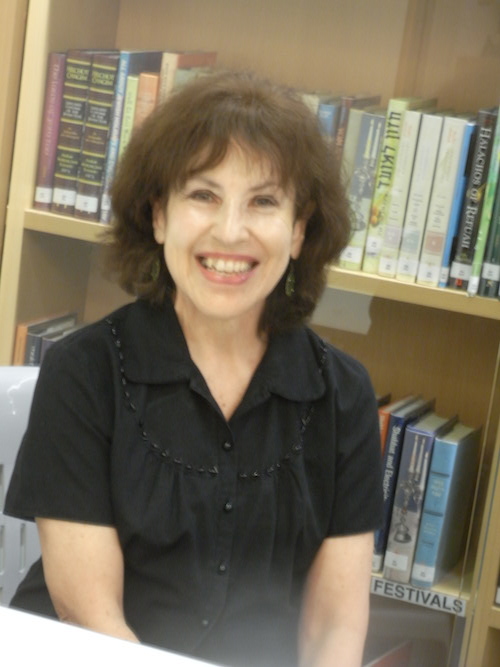In law courts around the world, confessing to a crime is considered absolute and irrefutable proof of guilt. Under most circumstances prosecutors will accept a plea of guilt to a lesser crime than go to trial in an attempt to secure a conviction on a more serious offence.
It is therefore rather strange to find that, according to halacha, confession to a criminal offence or sin is inadmissible in a properly constituted Jewish Court. This is based on the Talmudic principle, "Ein Adam Mesim Atzmo Rasha - a man cannot incriminate himself".
The notion of confession (Hebrew = vidui) as a means of expiation of sin was bequeathed to the world by the Torah. In ancient times, a sacrifice without confession was neither valid nor accepted. Even today, confession forms an integral part of the Yom Kippur service, without which forgiveness and atonement are unattainable. And of course, everyone is aware of the need for confession prior to death.
Indeed, in the game of catch-up that we often see in the relationship between Torah and Science, modern psychotherapy now also acknowledges that confession is good not only for the soul, but for the body and the mind as well.
In view of this it seems rather paradoxical that the very same Torah does not accept confession in a court of law!
The distinction lies in the difference between a person confessing his sin before G-d - an absolute necessity to expiate sin - and between confessing a sin before a court of law - for which he may have ulterior motives.
Maimonides codifies this in his epic Mishneh Torah as follows:
It is a scriptural edict that the court may not execute on the basis of one's confession.... Perhaps he is mentally unbalanced on this matter. Perhaps he is of the bitter workmen who try to kill themselves by stabbing themselves with a sword in their stomachs or throwing themselves off roofs. Perhaps this person admits to a crime he didn't commit in order to get killed. But the rule of the matter is that it is a decree from the King [i.e. a Scriptural edict].
Using their "common sense", most people would find both the Torah's rule, as well as Maimonides' explanation of it, far-fetched.
It is therefore gratifying to see that, as so often in the past, science has once again finally "caught up" with the Jewish perspective.
In an edition of Scientifc American - Mind there is an entire article devoted to the subject of false confessions. On the Innocence Project Web site (www.innocenceproject.org), referred to by the article, about a fifth of the wrongful convictions involved defendants who falsely confessed.
Among other cases, the article referred to the infamous New York Central Park jogger incident in 1989, in which a a female jogger was beaten senseless, raped, and left for dead. She managed to survive, but she was and still is completely amnesic for the incident. Within 48 hours, solely on the basis of police-induced confessions, five African American and Hispanic American boys, 14 to 16 years old, were arrested for the attack. All were ultimately tried, convicted, and sentenced to prison. The crime scene betrayed a bloody, horrific act, but no physical traces at all of the defendants.
Four of their confessions were videotaped and presented at trial. The tapes were compelling, with each and every one of the defendants describing in vivid - though, in many ways, erroneous - detail how the jogger was attacked, when, where, and by whom, and the role that he played. One boy stood up and reenacted the way he allegedly pulled off the jogger's running pants. A second said he felt pressured by the others to participate in his "first rape." He expressed remorse and assured the assistant district attorney that he would not commit such a crime again. Collectively, the taped confessions persuaded police, prosecutors, two trial juries, a city, and a nation.
Thirteen years later, Matias Reyes, in prison for three rapes and a murder committed subsequent to the jogger attack, stepped forward at his own initiative and confessed. He said that he had raped the Central Park jogger and that he had acted alone. Investigating this new claim, the Manhattan district attorney's office questioned Reyes and discovered that he had accurate, privileged, and independently corroborated knowledge of the crime and crime scene. DNA testing further revealed that the semen samples originally recovered from the victim-which had conclusively excluded the boys as donors (prosecutors had argued at trial that the police may not have captured all the perpetrators in the alleged gang rape, but this did not mean they did not get some of them)-belonged to Reyes. In December 2002, the defendants' convictions were vacated. The case of the Central Park jogger revealed five false confessions resulting from a single investigation!
The article goes on to explain that sometimes innocent people offer confessions without much prompting or pressure from police. When Charles Lindbergh's baby was kidnapped in 1932, some 200 people stepped forward to confess. In the 1980s, Henry Lee Lucas falsely confessed to hundreds of unsolved murders, making him the most prolific serial confessor in history. There are several possible reasons why people might voluntarily give a false confession, including a pathological desire for notoriety, especially in high-profile cases reported in the news media; a conscious or unconscious need for self-punishment to expiate feelings of guilt over prior transgressions; an inability to distinguish fact from fantasy due to a breakdown in reality monitoring, a common feature of major mental illness; and a desire to aid and protect the real criminal.
The author of the article observes that possible motives for voluntary false confessions are limited only by the imagination. This of course brings to mind the final comment of Maimonides quoted above. After suggesting a possible reason as to why a person may make a false confession, he concludes: But the rule of the matter is that it is a decree from the King [i.e. a Scriptural edict].
From the above it should clear that when the Torah doesn't seem to accord with what "normal" people consider to be common-sense - as in this case, the preference of confession of other forms of evidence - we should not rush to condemn our "archaic" Torah. Rather we should wait until our common-sense catches up with the Divine Wisdom. It behoves us to remember what Eintstein once said: "Common sense is the collection of prejudices acquired by age eighteen." The wisdom of G-d as expressed in the Torah, on the other hand, is not common at all!
No wonder that our ancestors, that most intelligent of nations who even in ancient times were referred to as the People of the Book, humbly proclaimed at Mt Sinai: "We will do, and then we will understand!"
Rabbi Benzion Milecki OAM

 Welcome to the Sandra Bransky Library & Youth Synagogue, located on the first floor and including the Beit Midrash. Drop in any Sunday morning between 9 - 11am.
Welcome to the Sandra Bransky Library & Youth Synagogue, located on the first floor and including the Beit Midrash. Drop in any Sunday morning between 9 - 11am. 


